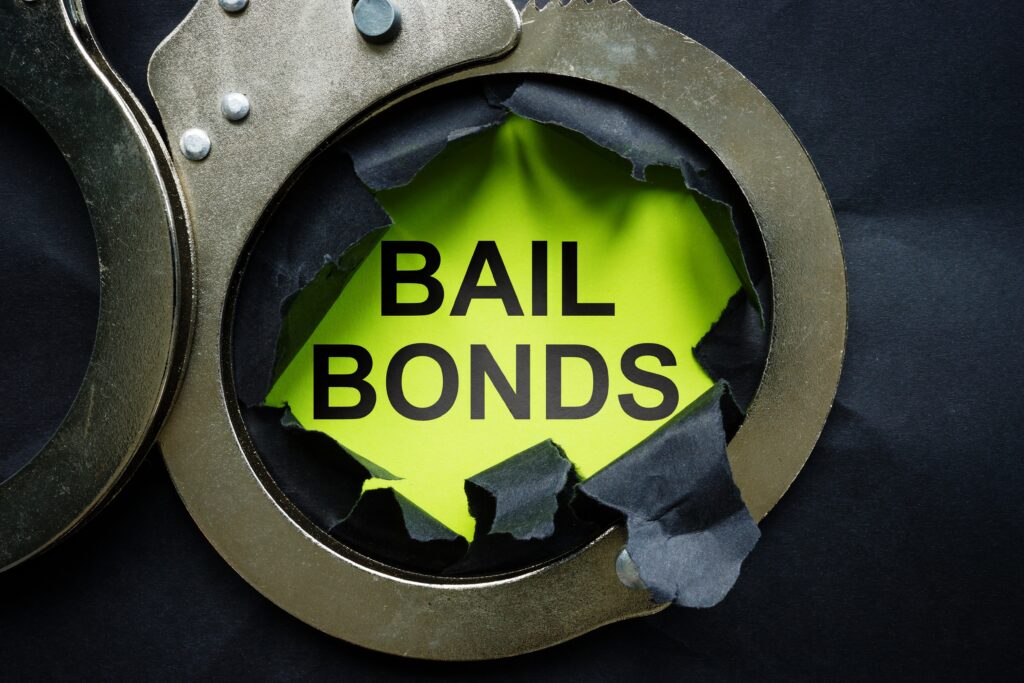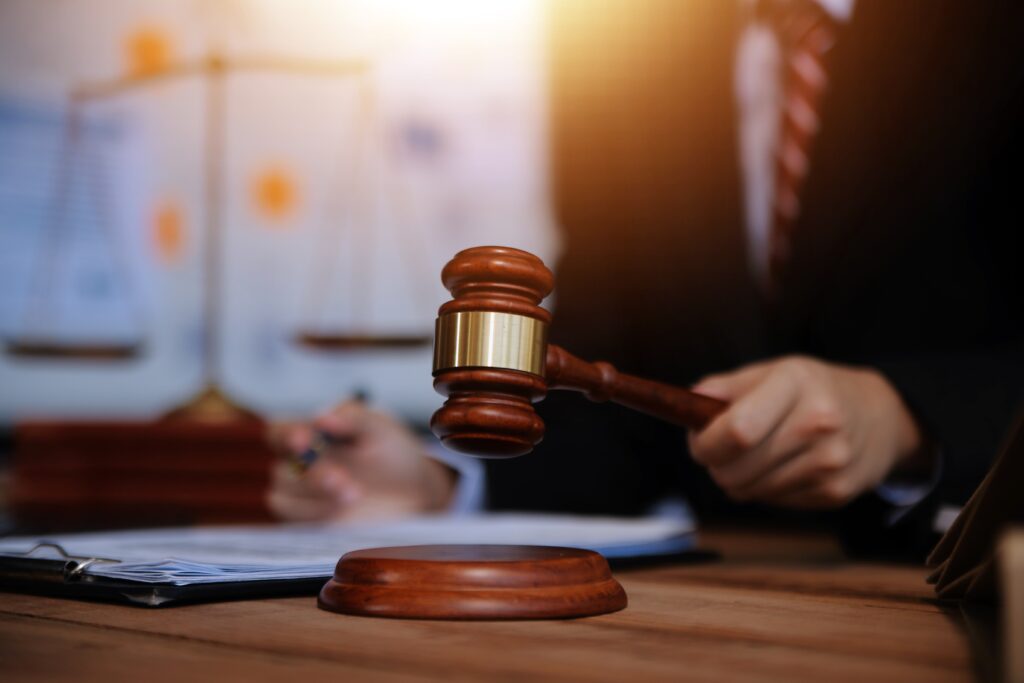When police arrest someone in Texas, their first concern is often how they can get released from custody. No one wants to spend more time than necessary in jail after an arrest. This is where bail bonds come into play.
Bail bonds serve as a financial guarantee that a defendant will appear for court proceedings after being released from jail. Understanding how bail bonds work and when they are used can help you and your family navigate this complex process. Our experienced Abilene criminal defense lawyer can help you to get the compensation you deserve.
The Purpose of Bail Bonds After a Texas Arrest
Bail exists to ensure that defendants return for their court dates while allowing them to remain free until trial. It balances the presumption of innocence with the need for accountability.

For those falsely accused of a crime, bail allows them to continue working their jobs, supporting their families, and participating in their usual activities while their attorney handles their legal case and prepares for trial if necessary. Even if you are eventually convicted, bail can mitigate the effects of your arrest and conviction on your daily life.
Under the Texas Code of Criminal Procedure Article 17.01, bail is defined as “the security given by the accused that he will appear and answer before the proper court the accusation brought against him.” The system is designed to prevent unnecessary pretrial detention while safeguarding the legal process by ensuring the accused party will appear at all required hearings.
How Bail Bonds Work in Texas Criminal Cases
Bail is frequently offered following arrest but before official charges are filed or immediately after the court announces the charges against you. Your criminal defense lawyer can let you know when to expect to learn your bail amount.
Bail is ultimately up to the court. They have discretion in these cases over whether to offer bail, what type to offer, and how much it should cost. The judge in the case will set bail. When bail is set, you or your family have several options to secure your release.
These include:
- Cash Bail: Paying the full bail amount directly to the court
- Surety Bond: Involving a licensed bail bondsman who guarantees the court the defendant’s appearance
- Personal Recognizance Bond: The court releases the defendant without payment, relying solely on their promise to appear
Cash bail is most commonly used in relatively minor cases when the defendant is required to pay a relatively small sum for their release. Most cases rely on surety bonds, especially in cases involving felony charges.
The Texas Code of Criminal Procedure Article 17.03 outlines the eligibility for personal recognizance bonds. In general, courts grant these bonds based on the judge’s confidence in the defendant’s reliability, the severity of the accusations against them, and other factors.
The Role of a Bail Bondsman in Paying Bail
A bail bondsman charges a non-refundable fee—typically 10 to 20 percent of the total bail amount—to post a surety bond on behalf of the defendant. In some cases, collateral may be required to secure the bond. This could include a vehicle, home, or other property.
Texas Occupations Code Chapter 1704 regulates the licensing and operations of bail bondsmen, holding them to high standards of accountability and fairness. They must follow strict rules and regulations when handling bonds, revoking bonds, and insuring their business operations.
How Judges Set Bail in Texas Criminal Cases
There is no way to accurately know how much your bail might be before a bail hearing with the judge in the case. However, experienced attorneys who are familiar with the court and the judge may be able to provide an educated estimate of the range of the bail you will receive or whether a personal recognizance bond is possible in your case.
The judge in the case sets the bail amount for each case.
They will consider many factors that could affect your bail amount, including:
- The severity of the offense
- Your criminal history
- Risk of flight
- Potential danger to the community
Texas Code of Criminal Procedure Article 17.15 provides specific guidelines for judges when setting bail, stating that it must be high enough to ensure the individual’s appearance in court but not excessive.
Bail schedules, which can vary by county, provide general ranges for common offenses. These set a parameter for where a judge might begin setting a bail amount. However, they often have a lot of discretion when assigning bail amounts.
Types of Bail Bonds Possible in Texas Criminal Cases
There are four types of bail bonds possible in Texas criminal cases. Some are not possible in all cases and others may not be practical when bonds are too high or the family does not have the necessary assets.
The four types include:

- Cash Bonds: These bonds require the defendant to pay the full bail amount upfront. This is common for those accused of relatively minor crimes who have a low bail amount.
- Surety Bonds: These bonds are secured through a bail bondsman who charges a fee. This is what many people think of when they hear about bail bonds.
- Property Bonds: This type of bond uses real estate as collateral for the bail amount. It is important to remember that this puts your home or other property at stake if you miss court for any reason.
- Personal Bonds: Personal bonds are used when someone is released on personal recognizance. They are based on the defendant’s promise to appear, often without monetary requirements.
Eligibility for these options depends on the nature of the charges, the defendant’s history, and the judge’s discretion. Your attorney may be able to present a strong case for a lower bond or a personal recognizance release under some circumstances.
Those with strong ties to the area may receive a personal recognizance bond. This could include family, a job, and owning a home in the city or county where the arrest occurred. Those who do not have the means to run to another country may more successfully seek a personal recognizance bond.
Understanding the Possible Conditions of Bail in Texas
Sometimes, paying bail or getting a bail bond is not enough. You may need to meet other conditions, as well. When granting bail, the court may impose specific conditions to ensure compliance.
The goal of these conditions is to ensure the safety of the community—especially the alleged victim—and that you report to court when necessary.
Some common conditions can include:
- Adhering to a curfew
- Avoiding alcohol and drugs
- Avoiding contact with the alleged victims or witnesses
- Submitting to GPS monitoring
- Remaining in the area unless you receive specific permission to leave
Violating these conditions can result in revocation of bail. Texas Code of Criminal Procedure Article 17.40 authorizes courts to impose such conditions, tailoring them to the defendant’s circumstances.
For example, if you have a history of drunk driving arrests or drug crime arrests, you will likely be told to avoid alcohol and drugs throughout this period.
When Are Bail Bonds Used in Texas Criminal Cases?
Bail may be required in almost any criminal case that could result in time behind bars. In general, courts are much more likely to use personal recognizance bonds in cases where the defendant is accused of a minor crime that did not put anyone else in physical danger.
Some scenarios when bail bonds are commonly used include:
- Misdemeanors: For less severe crimes, such as theft or minor drug offenses, including drunk driving arrests
- Felonies: For more serious charges, like assault or burglary
- During Investigations: When the police arrest someone and have them in custody, but before formal charges are filed
Bail bonds ensure you can pay the bail and get a timely release. This allows you to return to your usual activities, meet with your lawyer, and work alongside them to prepare your defense effectively.
What Happens If You Cannot Afford Bail After a Texas Arrest?
Making bail can be expensive, even if you work with a bail bondsman who will pay most of the cost. Some people simply do not have the cash or available assets to pay bail after a Texas arrest.
Still, defendants who cannot afford bail have options. These include:
- Having their lawyer help them request a personal recognizance bond
- Requesting a bail reduction with help from their lawyer
Courts are required to consider a defendant’s financial resources when setting bail. Still, this is a common issue. Bail reform is often a hot topic in Texas, with much advocacy and discussion.
Whether you have a criminal defense lawyer or a public defender handling your case, they should know how to petition for a lower bail and provide guidance about how you can secure your release.
What Happens If You Fail to Appear in Court?

The purpose of bail is to secure your release while making sure you will appear in court when necessary. Most people want to do the right thing and do not want to face the consequences if they fail to appear, so they try to show up for their court dates.
Failing to appear for a scheduled court date has serious consequences, including:
- Bond Forfeiture: You forfeit the bail amount
- Arrest Warrant Issued: The judge will sign a warrant for your immediate arrest
- Additional Charges: Failing to appear may result in additional criminal charges, compounding the legal issues you face
Texas Code of Criminal Procedure Article 22.01 outlines the procedures for bond forfeiture, emphasizing the court’s authority to recover the forfeited amount.
If you face charges in Abilene, Texas, your court hearings will likely take place at:
- Abilene Municipal Court, 4574 South First
- Taylor County Courthouse, 300 Oak Street
When you work with an attorney who manages your criminal defense, they will ensure you make it to the courthouse on time and are prepared to face the court. This protects your rights, prevents you from facing the harsh consequences of failing to appear, and gives you the best opportunity to win your case.
What Is the Role of a Criminal Defense Lawyer in Your Bail Bond?
The best resource you can have on your side when facing criminal charges and needing to bail out of jail is an experienced criminal defense lawyer. You want to hire an attorney to represent you immediately after you learn about accusations against you or police arrest you.
Your criminal defense lawyer plays a critical role in the bail process, including:
- Negotiating Bail Amounts: Your lawyer will advocate for reduced bail or a personal recognizance bond.
- Representing at Bail Hearings: Your attorney will protect your rights during your bail hearing and throughout the criminal justice process.
- Securing Bond Modifications: Your attorney will advocate for you and may be able to help you adjust conditions if they are too restrictive and cause an issue for you.
Having effective legal representation for your case can make a significant difference in achieving a favorable outcome. This is true throughout all phases of your case, including the pretrial phase when you seek and secure a bail bond to get your release.
Discuss Your Case With a Texas Criminal Defense Law Firm
Bail bonds are an integral part of the Texas criminal justice system, providing a path for pretrial release while showing the court you intend to comply with its process.
Understanding how they work, the laws governing them, and the role of your attorney can empower you and your family to make a more informed decision about how to manage this step.
If you or a loved one faces criminal charges in Texas, our experienced Abilene personal injury lawyers can navigate the bail process for you and protect your rights.
Contact the Law Offices of David M. White in Abilene by calling (325) 437-3311 today. We also have an office in San Angelo at (325) 221-4421. We have someone available to take your call now.
